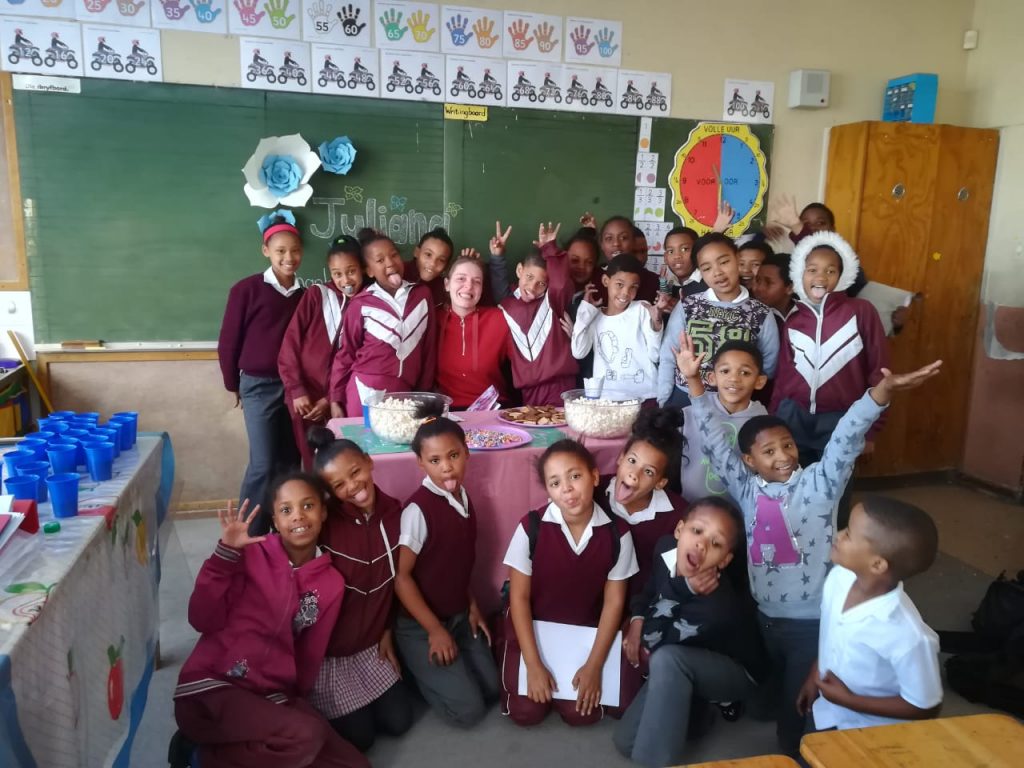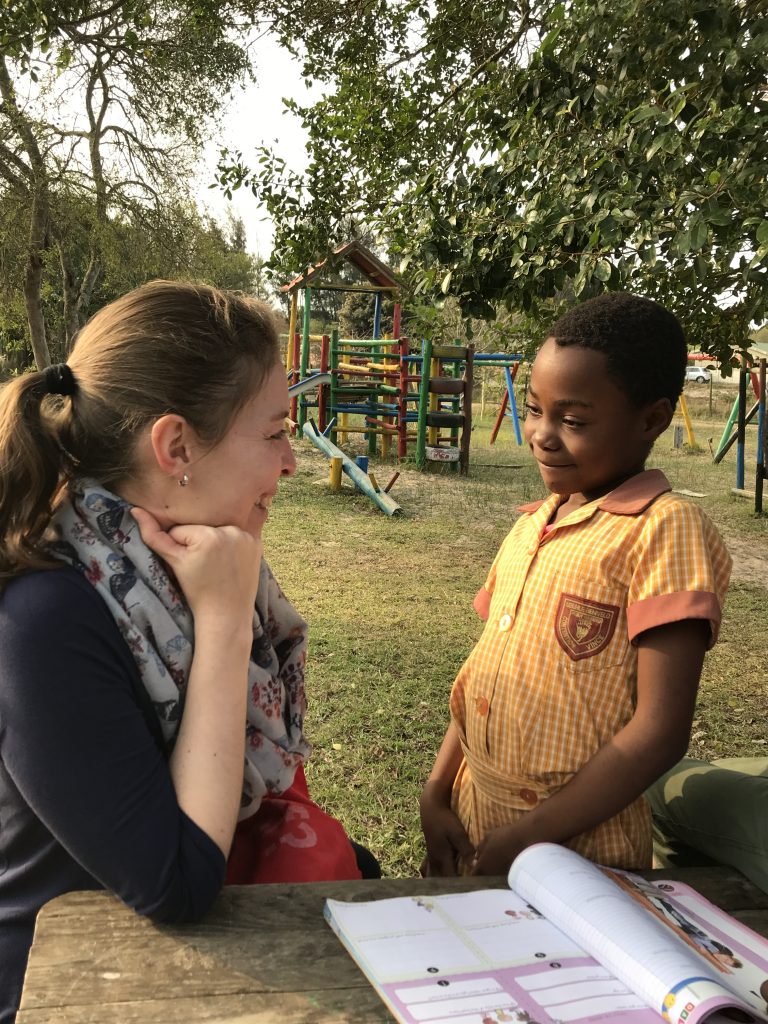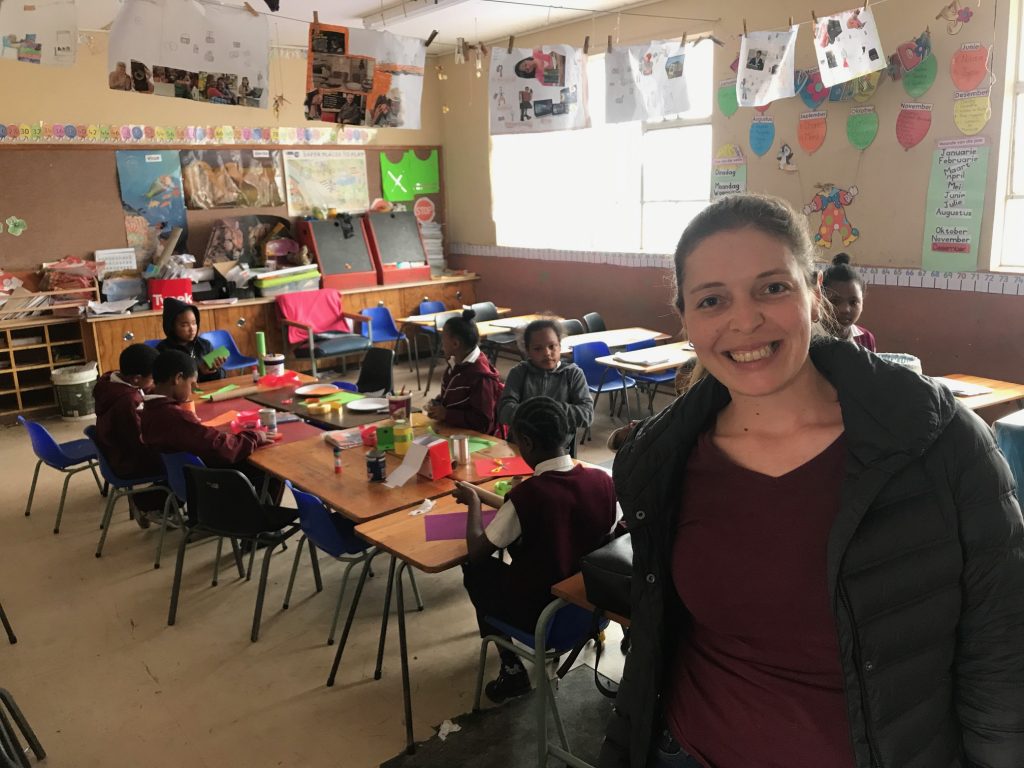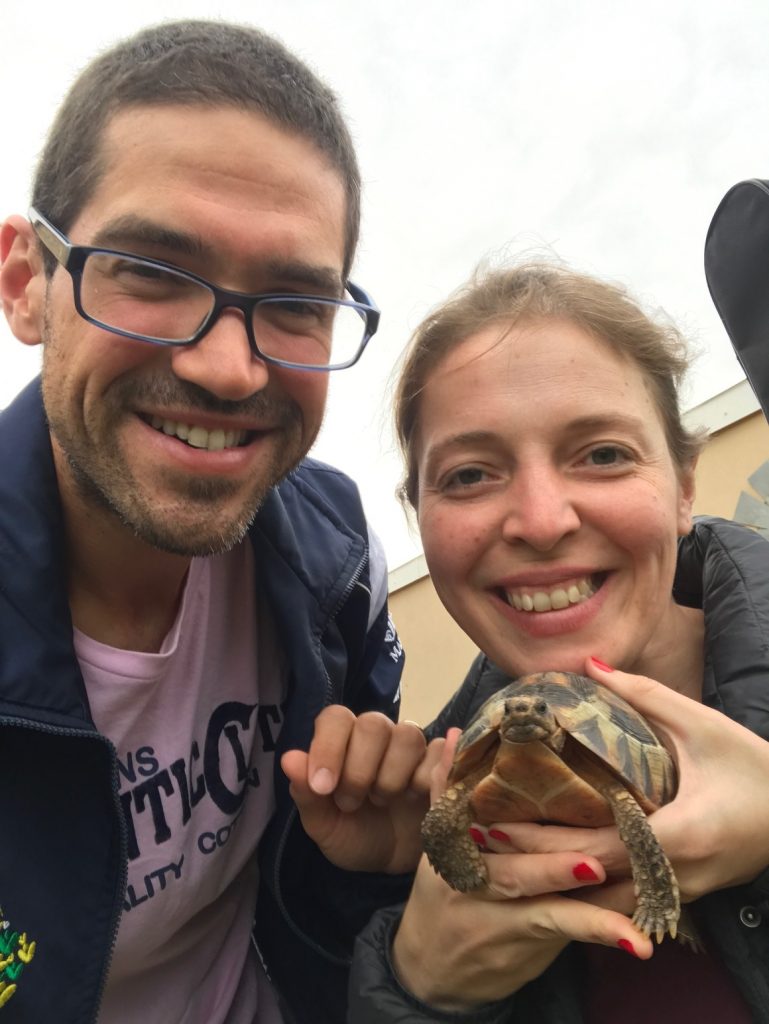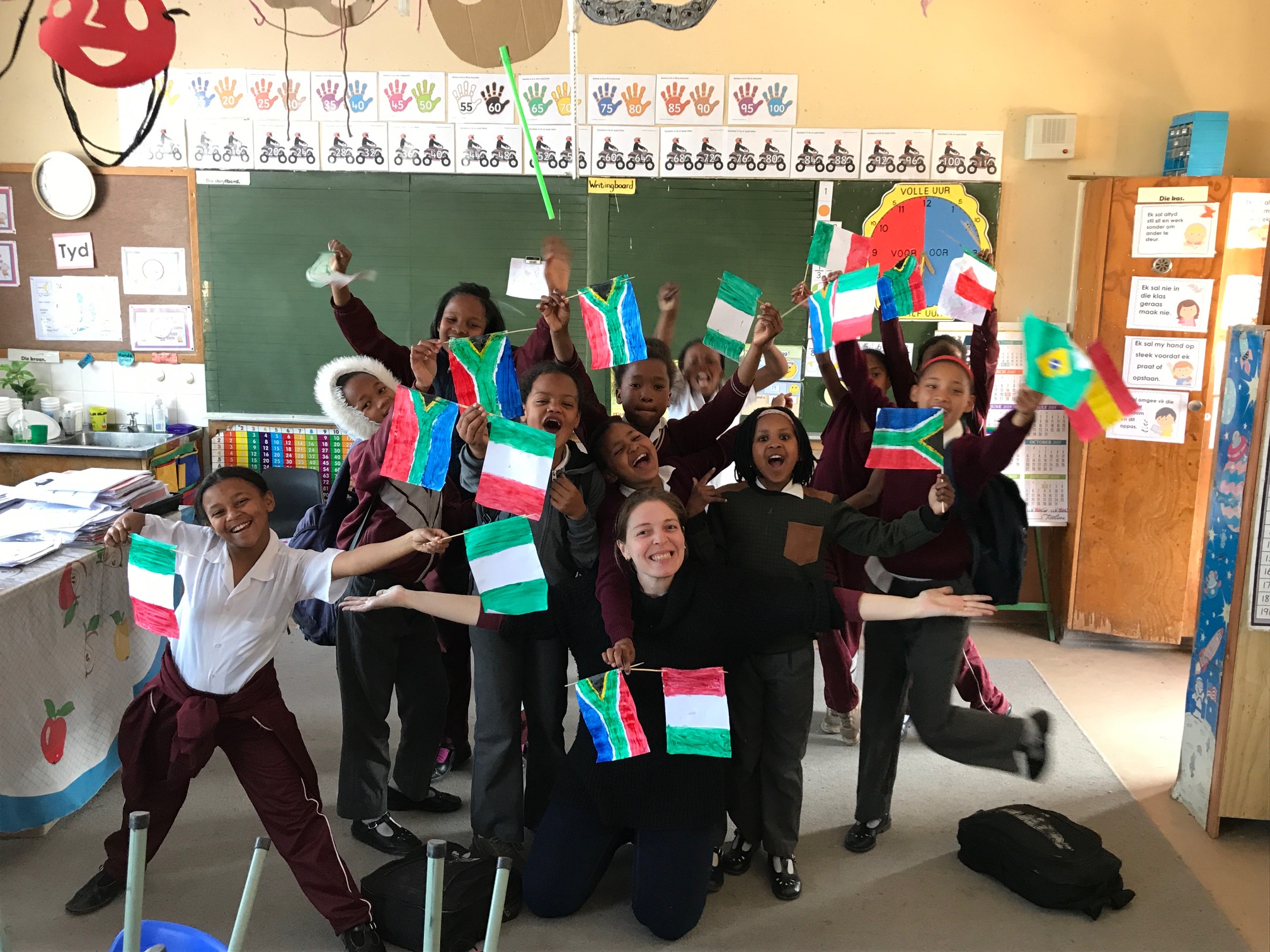
Juliana Fontoura Galline, two years in the community of Atlantis
Juliana Maria Fontoura Galline belongs to the Province of Brazil Centro-Sul and joined the LaValla200> group in 2018. Together with her husband, Diogo Galline, she was in the international community of Atlantis, South Africa, for two years, from 10/03/2019 to 25/12/2020. Having now returned to the Province, she shares with us some thoughts of her experiences.
If you are interested in dedicating a significant amount of time in a Lavalla200> community, please contact your provincial or write to [email protected].
How did your Marist vocation originate and what motivated you to participate in the Lavalla200> programme?
I began my Marist life in 2013, when I started working in the area of communication in the Marist Province of Brazil Centro-Sul (PMBCS). Little by little, through my contact with the Marist historical and spiritual patrimony, with the life of Marcellin Champagnat, and through contact with the brothers and Marist laypeople, I fell in love with the Institute in such a way that today I lead a Marist life in which personal life and work/minstry are intertwined. I met my husband working in the Province. In 2017 we read the letter sent by Br. Emili Turú entitled “The Dance of Mission”, with its invitation to all Marists, brothers and lay, “to discern, before God, whether they feel the call to leave their country of origin to be part of an international community in another region of the world.” Diogo and I were newlyweds, with our whole lives organized (apartment, stable work…), but we felt that we were missing something to feel complete in our Marist life. We were missing an experience of committing ourselves to the Marist mission in a different way than we had lived until that moment. So we went through a time of discernment and decided to participate in the program. In Br. Emili’s letter there was a phrase that struck us deeply: “What would you do if you were not afraid?” We knew that it would mean a radical change in our life, yet we decided to take the risk.
What had the greatest impact on you during this experience?
I believe that my experience in the LaValla200> programme has enhanced my experience of fraternity. In the community of Atlantis we were 6 Marists who, above all, acknowledged a common vocation for life. Within this vocation we had chosen to live together, but allowing for our specific options of who we want to be and how we want to live in the world: as Marist Brothers (we had in the community a brother from Italy, one from Australia and another from Nigeria); as a married couple (Diogo and myself, from Brazil) and as a lay Marist (Maria, from Spain). It was a very diverse community in terms of culture, age and life vocation. So together we had to learn to live as a family, recognising and accepting our differences and trying to discover what united us as Marists of Champagnat.
What was your role in the ministry of the Atlantis community?
Our ministry also had a strong element of fraternity. I had the opportunity to work as an art teacher in a public school and, through this experience, I was able to participate in the lives of the children and understand the difficult circumstances of life that they faced. In our classroom, they could be themselves as children; a safe space where they could express themselves creatively, without fear. In the same way, I was able to work with Maria in St. Clare’s Sancturary for women who had suffered domestic violence and their children. They stayed there for 3 months until they could find a safe place to live away from the abuser. In our time with them we focussed on being a sisterly presence of acceptance and trust. We were able to do things to restore their femininity and strength to move forward. Both experiences taught me a lot and profoundly transformed my view of the world.
How would you summarize your experience?
Courage, trust in God, openness to what is different and resilience.
Was there any one thing that stood our for you in the expereince?
I was very touched by the community and our meetings and ministry. In community life, God gave me two great gifts: Pietro Bettin and María Bobillo. As soon as I met them I felt that there was a meeting of souls between us. Little by little, both of them captivated a special place in my heart and today they are like family members for me.
Pietro is a very wise brother who always has something to teach and a loving word to say. He always made me feel important in the community and was always my great encourager when I was devising activities for the children. On many occasions he also displayed his talent for playing the accordion. We even created a band called “Joy to the world”! Pietro is a lover of nature. He taught me to see beauty in the little things in life.
Maria was also a very special gift to me. As soon as I arrived in the community she trusted me to join her in her work at the sanctuary. Together we did really well, preparing activities and carrying them out with the women. We combined our skills and were complementary in our work there. María is a sister to me, someone I admire immensely for her sensitivity, commitment and dedication in everything she does.
In our community ministry what stands out for me is the chance I had to be among the children at school where we developed a special kind of communication between us. In the art classes I always brought a large envelope for the children to write me letters with suggestions for art activities. The idea was to imagine learning tasks together, to give the children a voice in determining what we did. This was my initial intention, but after some time I began to realize that our exchange of correspondence was becaming a way to give the attention, love and affection that perhaps they did not receive at home from family members. Through these letters, I got to know the children better and their life circumstances. This grew into an affective relationship, one that will last a lifetime.
What was your greatest learning?
In the Encyclical Fratelli Tutti, Pope Francis invites us to feel genuine love for our neighbour; a love that goes beyond the barriers of geography and space; a love that allows us to recognise, value and love all people regardless of their physical proximity, or whatever the place on earth where they were born or live. I believe that the greatest learning from this experience was to understand that, even with our differences in the LaValla200> community, we were able to carry out our ministry and live in harmony. We also managed to become integrated into the vulnerable community of Atlantis (also a diverse culture) and, with them, build bridges. I understood that it is not possible to walk alone. Today I am sure that community life gives the strength to look ahead. It is by dreaming together that we can achieve great things for the good of all. Maybe one day the time will come when everyone in the world, all people, of all nations, will recognize themselves as one body, one humanity. As the Encyclical says, “May we recognize one another as children of the same earth which is home to all of us, each with the richness of our faith and convictions, each with our own distinctive voice, but all of us, brothers and sisters.”
How have these two years helped you to mature in your Marist vocation?
I believe that the experience of LaValla200> has given me an opportunity to live my spirituality at depth. Br. Ernesto Sanchez, in his last circular, wrote that this experience must be carried out in a personal and community way. He says that it is necessary to embark on a spiritual journey, which begins by entering our inner depths, the dimension of interiority. He says, “Interiority prepares our hearts to be open to Mystery, thus making room for a spiritual experience … In a spiritual experience, we are in touch with the depths of our humanity, to the point of glimpsing the divine, seeing ‘through a glass darkly’ realities that remain beyond our touch and reach.” I believe that throughout this experience of LaValla200> I have learned to take care of my inner, spiritual journey, and in this way I have also developed the capacity to establish healthy and lasting human relationships with others. I have learned to focus on caring for others.
What were the greatest challenges of this period?
I believe it was the development of tolerance and resilience. I believe that community life is made of lights and shadows. It was often difficult to live together; it was hard for me to face my shortcomings and recognize my weaknesses in my relationship with others. It has been a tortuous path for me to accept what is different, with its strengths and limitations. I believe that I did better at this when I took time for myself and recognized a deep relationship with God. Only in this way was I able to change my way of thinking about others. I was then able to see them in a different way, with mercy, respecting them in all their humanity.
What would you say to someone who is interested in taking up this invitation?
I believe that to enter into the LaValla200> experience you have to be willing to live according to Mary’s heart. She overcame her fears, trusted in God and made herself available. So, if brothers and lay Marists feel called to go beyond the confines of their Province as international volunteers, have the courage to say “yes” to this invitation from the Institute. I would love for all of us to play our part towards fraternal, inclusive societies by following our lives in Mary’s way. I am sure that this is how we will be able to build new ‘homes of light’ together, one day at a time.


